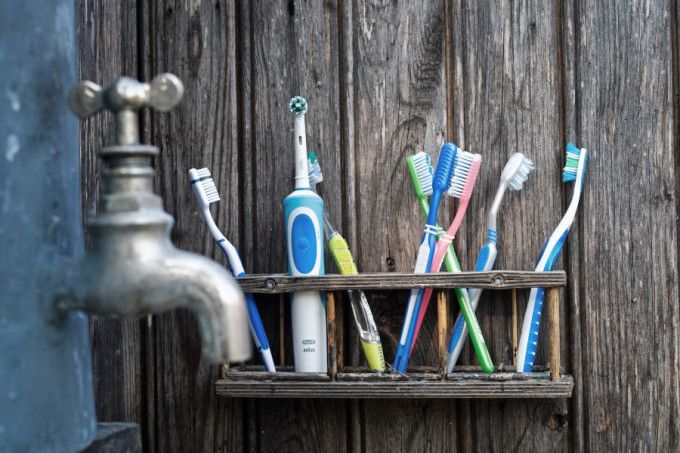
Do You Need To Floss?
By Davina Patel, Dentist at Burnt Oak Dental Practice in London
The short answer is yes, you do need to be flossing. For some, flossing has always been part of their routine, while others have never tried, or found it difficult so gave up. We're here to explain why you should be flossing, how often you need to do it and what you can use to floss – don't worry if you've struggled with floss before, there are flossing alternatives that work just as well.
How Often Should You Floss?
From the age of 12, everyone should be flossing their teeth to maintain good oral hygiene. One of the most common questions is how many times should you floss a day? You should floss once a day. Morning or evening doesn't matter, as long as you are flossing at least once per day before brushing.
How To Floss Correctly: For Healthy Teeth & Gums
Dental floss is used to clean between your teeth, clearing out pieces of food that get caught. You should floss before brushing to clear away any food deposits and make your brushing all the more effective.
The NHS advises that when flossing you should be using a gentle "rocking" motion to guide the floss between your teeth. This ensures you get to all the bits that are caught without damaging your gums. Regular flossing will help to prevent gum diseases and other issues with your teeth and gums.
Can You Floss Too Much?
Flossing too often or too hard can cause damage to your gums and tooth enamel. Like overbrushing, frequent flossing can lead to sensitive teeth and gums and dental issues. Flossing once per day is enough to maintain good oral health.
What If My Gums Bleed?
If you haven't flossed before or are just starting to clean between your teeth again after a long period of time, you may find that your gums bleed a little. This is because they are sensitive and you are stimulating the gums, while getting rid of plaque buildup. Bleeding should reduce over time as your gums become healthier. If you notice bleeding is not reducing or there is excessive bleeding, then speak to your dentist or dental hygienist to get advice on how to proceed.
Reusing Dental Floss
You should not reuse dental floss. Each piece is used to clean between your teeth, picking up food and bacteria. If you reuse the floss, you may introduce old bacteria back into your mouth and compromise your oral health.
What To Floss With

When we talk about flossing between teeth, we are referencing traditional string floss, but thanks to advances in dental hygiene tools, there are lots of new ways to clean between your teeth. While flossing is effective, it is not the only or necessarily the best way to clean between your teeth.
Floss comes in multiple varieties, including ribbon and thin string forms; not to mention flavoured and unflavoured. Depending on how much space there is between your teeth, you may find that using floss is too difficult and therefore is not the best way to clean your teeth and gums. Luckily there are lots of flossing alternatives.
Alternatives To Flossing
There are three popular alternatives to traditional floss that you can use:
- Floss picks
- Interdental brushes/sticks
- Water piks
Floss Picks
Floss picks are small, usually plastic, y-shaped sticks with a piece of dental floss between the top two points. Having the floss attached in this way can make it easier to reach between back teeth and can be a simpler way to floss for those who find using the length of string fiddly.
For those wondering how to use dental picks, you should slide them between the teeth and press to the gums. Don't press too hard. Then use an in and out motion (not up and down) to remove food particles. Avoid snapping the stick as this can damage gums. Rinse after each use, if needed.
Interdental Brushes & Sticks
The NHS recommends using interdental brushes to clean between teeth. Interdental brushes are an alternative to flossing, so you don't have to use both. They have toothbrush-like bristles that clean plaque and food from between your teeth. Interdental brushes come in a range of sizes to suit the different size gaps between your teeth.
You may want to use multiple sizes of interdental brushes for your teeth. Unlike floss, interdental brushes are reusable, though they do have a limited number of reuses. Like toothbrushes, interdental brushes should be used as long as the bristles are raised and firm. As soon as they wear down, be that after one use or a week's use, you should replace them.
Interdental sticks are an alternative to brushes and these work more like floss picks, pushing out food particles from between teeth. Like floss picks, these are most often single-use items, rather than reusable like interdental brushes.
Water Flosser / Waterpiks
Water flossers, sometimes called Waterpiks after the popular brand, use a burst of water from a thin nozzle to clean between teeth and gums. This quick flushing can be a great way to clean between teeth.
Although waterpiks are an effective alternative to flossing, it is also recommended that interdental brushes are used to clean between teeth.
Water flossers can be useful for those with limited hand mobility, who find other ways of flossing difficult.
What Is Most Important Is That You Floss Regularly
When it comes to flossing, as long as you are doing it once a day and keeping it up regularly, you will be doing a lot to maintain good oral health. Whether you are using actual floss or an interdental brush, you will be helping to prevent gum disease, tooth decay and other dental issues.
Disclaimer
The products offered are not intended to diagnose, treat, cure, or prevent any illness or disease, or to replace the advice of a medical professional. Results are not guaranteed and may vary from individual to individual.



